
BirdLife South Africa's Seabird Conservation team explains the imperative for implementing effective island closures in a bid to save the species.
The African Penguin is currently Thisted but listed as globally Endangered, but this classification is likely to change to Critically Endangered by the end of 2024. Once uplisted, it will be the most threatened penguin species in the world. At the current rate of decline, African Penguins may be extinct by 2035.
A quintessential feature of our marine and coastal environment, African Penguins attract local and international visitors to South Africa's shores. The African Penguin colony at Boulders Beach in Simon's Town is one of the most popular tourist destinations in the country and generates an estimated revenue of R310-million a year. Sadly, the number of birds visitors see at Boulders gives a false impression of a situation that has actually reached crisis proportions.
Once one of South Africa's most ubiquitous seabirds, estimated to number 1.5-3 million individuals at the turn of the 20th century, the species has lost a staggering 97 per cent of its population. In the past 30 years the number of African Penguins breeding in South Africa has declined by 73 per cent. It is estimated that there are fewer than 10,000 breeding pairs left.
Efforts to conserve the African Penguin have been extensive and include protocols to minimise the impacts of oiling and predator incursions into colonies. However, scientists have repeatedly stressed the need to secure the major driver of their survival – the sustained availability of anchovies and sardines.
This story is from the May/June 2024 edition of African Birdlife.
Start your 7-day Magzter GOLD free trial to access thousands of curated premium stories, and 9,000+ magazines and newspapers.
Already a subscriber ? Sign In
This story is from the May/June 2024 edition of African Birdlife.
Start your 7-day Magzter GOLD free trial to access thousands of curated premium stories, and 9,000+ magazines and newspapers.
Already a subscriber? Sign In

EXPLORING NEW HORIZONS
Keith Barnes, co-author of the new Field Guide to Birds of Greater Southern Africa, chats about the long-neglected birding regions just north of the Kunene and Zambezi, getting back to watching birds and the vulture that changed his life.

footloose IN FYNBOS
The Walker Bay Diversity Trail is a leisurely hike with a multitude of flowers, feathers and flavours along the way.
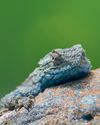
Living forwards
How photographing birds helps me face adversity
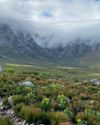
CAPE crusade
The Cape Bird Club/City of Cape Town Birding Big Year Challenge
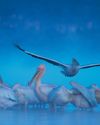
water & WINGS
WATER IS LIFE. As wildlife photographer Greg du Toit knows better than most.
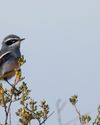
winter wanderer
as summer becomes a memory in the south, the skies are a little quieter as the migrants have returned to the warming north. But one bird endemic to the southern African region takes its own little winter journey.
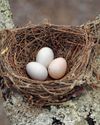
when perfect isn't enough
Egg signatures and forgeries in the cuckoo-drongo arms race

Southern SIGHTINGS
The late summer period naturally started quietening down after the midsummer excitement, but there were still some classy rarities on offer for birders all over the subregion. As always, none of the records included here have been adjudicated by any of the subregion's Rarities Committees.

flood impact on wetland birds
One of the features of a warming planet is increasingly erratic rainfall; years of drought followed by devastating floods. Fortunately, many waterbirds are pre-adapted to cope with such extremes, especially in southern Africa where they have evolved to exploit episodic rainfall events in semi-arid and arid regions. But how do waterbirds respond to floods in areas where rainfall - and access to water - is more predictable? Peter Ryan explores the consequences of recent floods on the birds of the Western Cape's Olifants River valley.
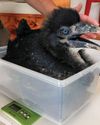
a star is born
It’s every producer’s dream to plan a wildlife television series and pick the right characters before filming.